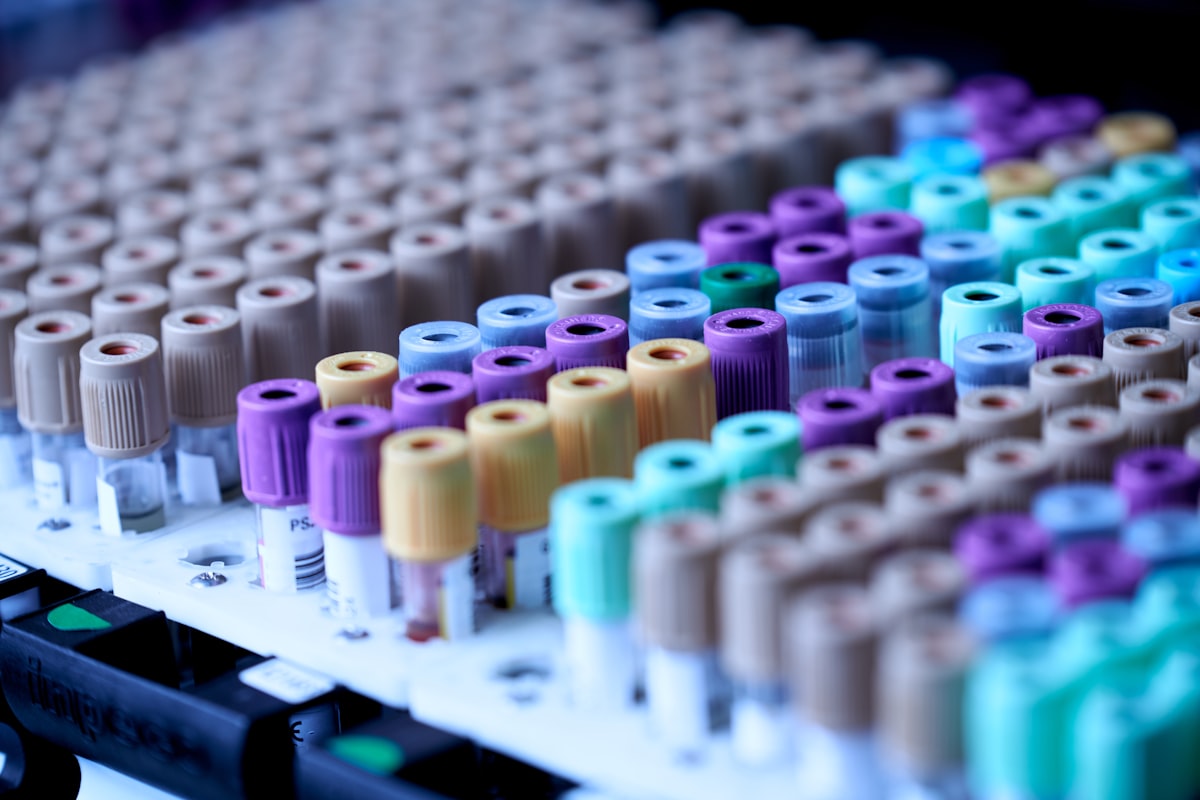
Lung cancer is one of the deadliest forms of cancer, with a low survival rate of only 18% at five years. The main reason for this high mortality rate is the difficulty in diagnosing the disease at an early stage when it is most treatable. Currently, the most common methods for detecting lung cancer are chest X-rays and CT scans, which can be expensive, invasive, and often inaccurate. However, recent advances in medical research have led to the development of breakthrough blood test markers for lung cancer detection, offering a promising new approach to early diagnosis.
In recent years, there has been a growing interest in the use of blood tests for cancer detection, as they offer a non-invasive and cost-effective way to identify the disease. Researchers have identified several potential blood test markers for lung cancer, which are proteins or other substances that are found in the blood and are associated with the presence of cancer cells. These markers can provide valuable information about the likelihood of a person having lung cancer, and can help in diagnosing the disease at an earlier stage. This can significantly improve the chances of successful treatment and a better overall prognosis for patients.
One of the most promising blood test markers for lung cancer detection is a protein called CYFRA 21-1. This protein is found in the blood and has been shown to be elevated in patients with lung cancer. In a study published in the Journal of Thoracic Oncology, researchers found that levels of CYFRA 21-1 were significantly higher in patients with lung cancer compared to those without the disease. This suggests that the protein could be a useful biomarker for the early detection of lung cancer. The study also found that combining CYFRA 21-1 with other blood test markers, such as CEA and SCC, further improved the accuracy of lung cancer detection.
Another promising blood test marker for lung cancer is a protein called NSE (Neuron-Specific Enolase). NSE is normally found in the brain and nervous system, but elevated levels have been observed in patients with lung cancer. A study published in the journal Oncology Letters found that NSE levels were significantly higher in patients with lung cancer compared to healthy individuals. The authors concluded that NSE could serve as a useful biomarker for the early detection of lung cancer, and could potentially be used in combination with other blood test markers to improve diagnostic accuracy.
In addition to proteins, researchers have also identified other substances in the blood that could be used as markers for lung cancer detection. One such example is circulating tumor DNA (ctDNA), which are small fragments of DNA that are released into the bloodstream by cancer cells. A study published in the journal PLOS One found that ctDNA levels were elevated in patients with lung cancer, and that the presence of ctDNA was associated with a higher risk of cancer recurrence. This suggests that ctDNA could be a useful blood test marker for not only detecting lung cancer, but also for monitoring the progress of the disease and predicting its recurrence.
The development of blood test markers for lung cancer detection has the potential to revolutionize the way the disease is diagnosed and treated. Current methods of lung cancer detection, such as chest X-rays and CT scans, have limitations in terms of accuracy, cost, and invasiveness. By contrast, blood tests are non-invasive and can be easily administered in a clinical setting, making them a practical and accessible tool for early diagnosis. Furthermore, blood test markers have the potential to detect lung cancer at an earlier stage when it is most treatable, thus improving patient outcomes and reducing the overall burden of the disease.
In addition to their potential for early diagnosis, blood test markers for lung cancer can also be used to monitor the progress of the disease and the effectiveness of treatment. For example, changes in the levels of certain proteins or other substances in the blood could indicate whether the cancer is responding to treatment, or if it is becoming more aggressive. This can help doctors make more informed decisions about the best course of action for individual patients, and can ensure that they receive the most appropriate and personalized care.
In conclusion, the development of breakthrough blood test markers for lung cancer detection represents a significant step forward in our ability to diagnose and treat the disease. These markers offer a non-invasive and cost-effective way to identify lung cancer at an early stage, which can significantly improve patient outcomes and reduce the burden of the disease. As research in this field continues to advance, we can expect to see further improvements in the accuracy and reliability of blood test markers for lung cancer detection, ultimately leading to better outcomes for patients and a brighter future in the fight against this deadly disease.












